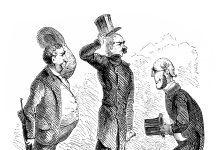In this special report, Dawn Zinga focuses on exploring the responsibilities of non-Indigenous individuals within higher education settings.
As a non-Indigenous scholar working in the area of Indigenous education, I spend a lot of my time thinking about my own role in perpetuating inequality within higher education and answering questions posed by non-Indigenous faculty, staff, and students. These questions usually fall into two broad categories. The first category consists of questions about why I am raising an issue or why something is important while the second category tends to focus on questions about what individuals can do now that they know about the inequities that exist. These two categories of questions point to some interesting aspects about non-Indigenous individuals’ responsibilities within higher education settings. One of the first responsibilities is to become educated about the realities of Indigenous peoples and related the systems of inequality. The second responsibility that I will focus on is what to do with the knowledge that you gain when you become educated.
Starting with the past
Starting with myself, I am a several-generations-removed immigrant to the ancestral lands on which I reside and I have experienced a position of some privilege in the mainstream structures of society such as education, health services, and other governmental systems. While I grew up in a blue-collar home and experienced the discrimination that can be associated class and with being a girl, I was afforded many privileges and rarely had cause to question that I belonged in the classrooms that I occupied. I frequently saw myself and my lived experiences reflected in the classroom and my experiences within society. From a young age, I had a questioning mind and often challenged teachers about why some voices and some lived experiences were not represented in the curriculum or were represented in very narrow and proscribed ways. Through my own search for knowledge and the generous teachings of my Indigenous colleagues, I became aware of the systems of racism and inequity experienced by individuals who are minoritized by the mainstream systems of privilege and discrimination that continue to be reinforced throughout society and particularly within systems of education. In my role as a university professor, I am also responsible for exposing undergraduate and graduate students to these systems of inequity and to challenge their taken-for-granted assumptions.
Understanding society
Some of my students resist any challenges to their understanding of society and the status quo and remain facing the first responsibility of education. Other students engage in the teaching but sink into guilt and seem paralyzed by the immensity and complexity of the issues they have just learned exist. The second responsibility of what to do with the knowledge once you have learned it is easier to address than the resistance to learning that the world does not necessarily operate that way that you thought it did and that with or without your knowledge you have occupied a position of power and privilege. The first thing for non-Indigenous individuals to realize is that guilt is an emotion that will not be helpful. It must be experienced but in the end we are not responsible for the actions of those who preceded us but we are responsible for how we address the legacy that was left behind. Essentially, non-Indigenous individual must focus on how to act on the knowledge that has been gained.
Non-Indigenous individuals have a choice. They can choose to close their eyes to uncomfortable realities and continue perpetuating them, or they can choose to use their individual voices to make a difference. Using one’s voice can be as simple as speaking up when an inequality is being perpetuated or challenging a policy that negates other people’s experiences or lived realities. It can be exposing others to knowledge they may not be aware of or supporting someone when that person’s viewpoint is being shut down as invalid or irrelevant. Sometimes it can be listening to another perspective and being open to being challenged and educated about how your own actions or lack of action may have reinforced inequalities or alienated Indigenous individuals.
Addressing these two responsibilities within educational contexts can lead to educational settings in which Indigenous students and other Indigenous individuals feel welcome and accepted. It can open up important spaces to talk about ways of moving forward together towards positive change that does not reproduce or perpetuate systems of inequality. While I have focused on higher education contexts, this can also be extended to other educational contexts. Making a choice to address these responsibilities daily is a choice to move beyond resistance and guilt to positive action and strong relationships that can help us all negotiate a new future of education for all students.
Dawn Zinga
Associate Professor and Chair
Department of Child and Youth Studies
Brock University
dzinga@brocku.ca
https://brocku.ca/social-sciences/departments-and-centres/child-and-youth-studies









